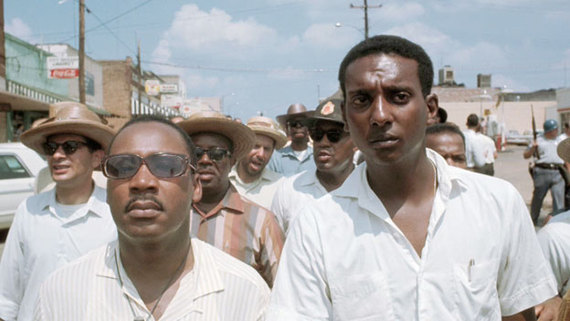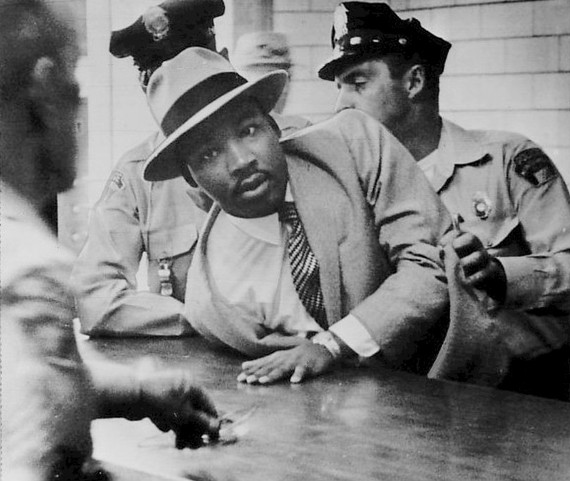This past Martin Luther King Day, Donald Trump took the opportunity to pay tribute to Dr. King, who would have been 87 had he been alive today. As expected, the tribute was little more than Trump's usual campaigning, with Trump dedicating his campaign rally that day to King. Trump's tribute to King was only a symbolic move, but it's not wholly surprising since King has largely become a convenient political symbol. What King said or what he stood for seems to get distorted. Most people that know of King know of his famed "I Have a Dream" speech, but what of his other speeches? What of the King who criticized the Vietnam War or the King who was preparing a speech titled "Why America May Go to Hell."
Martin Luther King has become such an iconic figure today that we forget that by the end of his life he was actually a very unpopular figure in the media. This is why I find it interesting how some people have tried to use King to attack the Black Lives Matter movement. This is the same King who was beaten and jailed for protesting segregation. King certainly did not listen to the voices within the white community that were denouncing him and he most likely would not have agreed with the voices today who attack the Black Lives Matter movement without addressing the situation that caused the movement in the first place. After all, King did say:
But it is not enough for me to stand before you tonight and condemn riots. It would be morally irresponsible for me to do that without, at the same time, condemning the contingent, intolerable conditions that exist in our society.
It's difficult to speak to what a person may or may not do if they were alive today, but that is precisely what many conservatives have attempted to do. For instance, Mike Huckabee suggested that King would have been "appalled" by the Black Lives Matter movement. Roger Simon wrote an entire article about how King would have viewed Black Lives Matter. It's curious how Simon criticizes the Black Lives Matter "people" for being the "sons and daughters of Stokely Carmichael" when Carmichael and King were actually friends. The two men marched together and struggled together. There certainly were disagreements between the two, but the two were much closer than Simon seems to think. Carmichael had great respect and admiration for King.

We are so accustomed to hearing about King's dream of a colorblind America that we forget critical aspects of King's thinking, like his being an advocate of Black pride. Simon writes about the division between the integrationists and the separatists, which ignores the fact that in the latter part of King's public career it was with the "separatists" that he found support. For instance, the media attacked him when King spoke out against the Vietnam War, but on this issue King found common ground with Muhammad Ali of the Nation of Islam. Like King, the Nation of Islam had criticized the hypocrisy of America sending Black people to fight in wars when those same Black people did not even have equal rights in America. Moreover, King himself later questioned if integration was the right move. He told Harry Belafonte, "I think we may be integrating into a burning house." So King was not the staunch integrationist that Simon tries to present him as in his article.
King may not have been shouting Black Power like Carmichael was doing, but when one listens to King's speeches from this time period he was clearly speaking about Black empowerment. For example, King said in his final speech "we've got to strengthen Black institutions." King was even an advocate for reparations.
If we really want to honor King's legacy it would be best to remember everything that he said and not pick and choose the parts of his legacy that are most convenient for us, especially those of us that are trying to dismiss or explain away the Black Lives Matter movement. Martin Luther King did not just dream about a colorblind America. He was unrelenting and fearless in attacking racism, poverty, militarism, and even capitalism. This made King unpopular with many people when he was alive and I suspect that had King been alive today he would be just as unpopular among some of the people that profess to love him.
--

